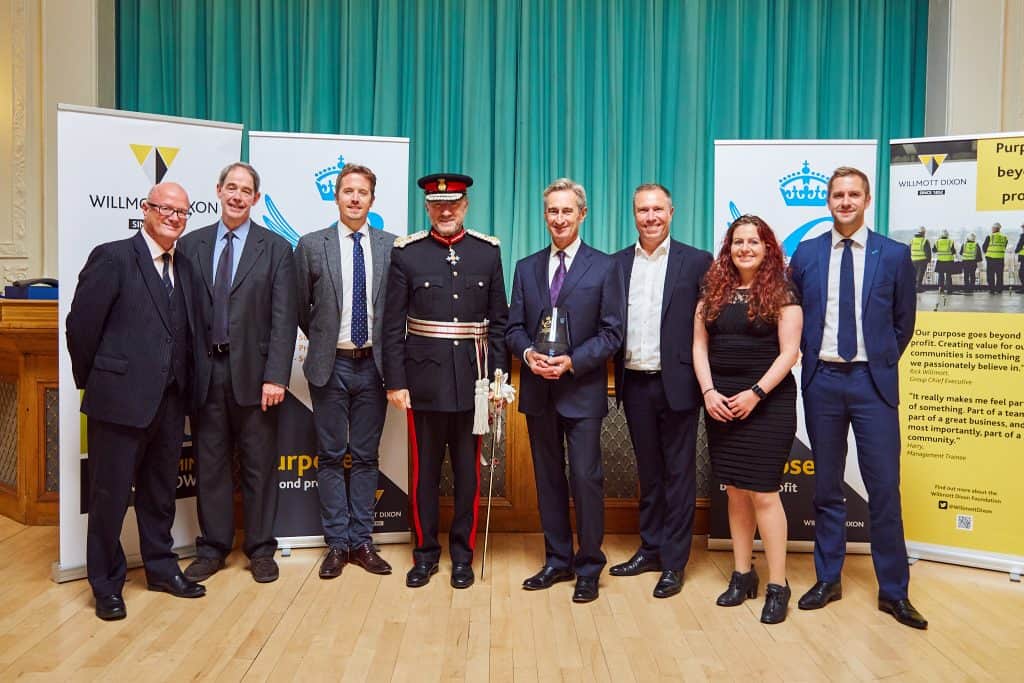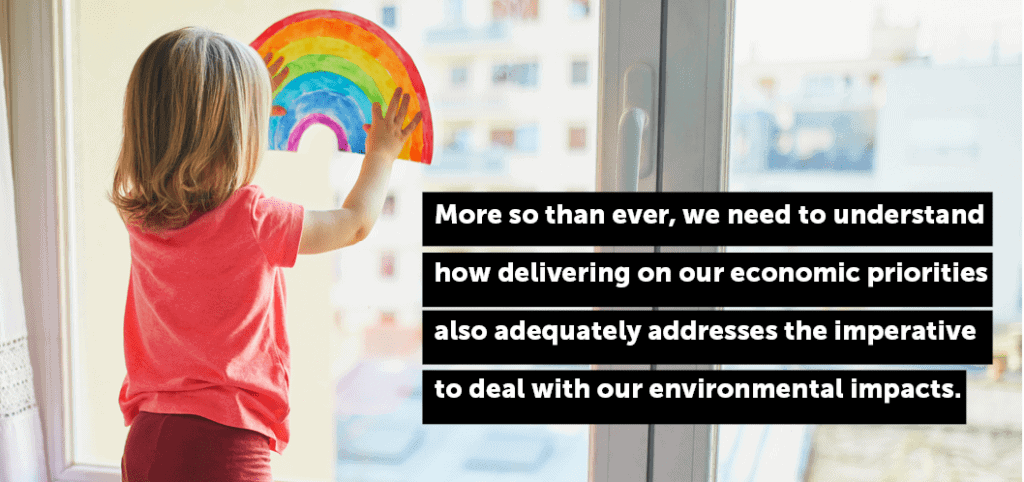Whilst the current world crisis has caused much loss of life and economic problems there have been some noticeable environmental improvements to many aspects of our lives. Simon Tranter, Head of Sustainability at Willmott Dixon Interiors shares his views in this article for World Environment Day
The skies are clearing of pollution, wildlife is returning, a host of flights have been scrapped and for many of us, life is also just that little bit simpler.
But, let’s not get carried away so quickly. The pain of the Covid-19 shutdown also serves to highlight how disorganised the world’s response to the climate crisis has been over the last few years. It also shows the magnitude of the challenge facing businesses, politicians and the public when we finally reach the so called “new normal”. Take carbon for example – the required cut in emissions from the global lockdown is still less than what scientists say is needed to avoid irreversible climate impacts around the world.
We are all aware that the construction industry has an impact on the environment – ranging from the amount of materials we extract from nature, the energy we use, through to the performance of the buildings and spaces we design and construct for society. It’s an industry-wide challenge, driven by inefficient ways of working. If we are to play our part in helping to tackle the climate crisis, the industry will need to make ‘sustainable thinking’ the new norm.
With all the anxiety-inducing, impending-doom warnings about the climate crisis, it could be tempting for businesses around the UK to cover their eyes and ears and simply carry on in ignorant bliss. The reality now though, is if businesses choose to block out the noise and shut themselves off, they risk being left behind. However, if we start to do things differently, we stand a much better chance of preventing irreversible damage to our climate and ecosystems.
This year, Willmott Dixon Group is aiming to launch its new Sustainable Development Strategy, which will outline our key priorities and targets for the next ten years. The most challenging of which includes becoming a Climate Positive business. This involves achieving specific carbon reduction targets, which align to the required global carbon reductions needed in society to help limit catastrophic climate change. In simple terms, our target means emitting zero carbon from our operations, as well as from the buildings we design, which is not an easy target to achieve.
To give the scale of the challenge some perspective, not one, single building built or refurbished by Willmott Dixon in the past or present complies with the target. This was the stark warning made by Jonathan Porritt last year, when Willmott Dixon received its third Queens Award – this time for Sustainable Development. We know we are making good progress, and these things should be celebrated, but are we doing enough?

Above: Willmott Dixon Receiving 3rd Queens Award
End of lockdown
When we exit lockdown, understandably our priorities will be on returning the economy, and our business, to sustainable forms of economic productivity. However, we need to be clear that our efforts over the coming months and years should not be solely focused on economics, and certainly not to the detriment of the natural environment. More so than ever, we need to understand how delivering on our economic priorities also adequately addresses the imperative to deal with our environmental impacts.

The climate crisis has caught our attention over the recent past, and it is still just as urgent as it was before this terrible pandemic gripped the world economy. Understandably, the pandemic is pushing the climate crisis off people’s minds, as the more pressing concern of immediately saving lives takes precedence. In these important times of reflection however, and as we consider our advances to establishing the “new normal” it’s important we don’t lose sight of the long-term threat that exists from irreversible climate damage.
It’s safe to say that no one would have wanted for emissions to be lowered in this way. The pandemic has impacted on our lives, health services, jobs and mental health – and preserving these should remain our top priority for the immediate future. However, the problems in the natural world haven’t suddenly disappeared – sea ice in the arctic is still melting, and the fires that devastated Australia earlier this year released more carbon than the country’s entire predicted CO2 output for the whole of 2020.
But it’s not all doom and gloom!
Remarkably the recent events caused by the pandemic have shown the difference that communities can make when they look out for each other – and that’s one lesson that could be invaluable in dealing with climate change. One response to the coronavirus outbreak that has gained some attention is the steps taken by society to protect itself from the health crisis. The speed and extent of the response gives some hope to the idea that similar action could also be taken on climate change.
It shows that at the national, or international level, if we need to act, we can. Whilst everyone is locked away in their homes, or social distancing at work, we should see the time afforded by self-isolation and self-preservation as a good opportunity to take stock of our consumption and environmental impacts – whether that be personal or business.
The lockdown is a time for reflection at Willmott Dixon. Yes, we should recognise the achievements in all that we do, but we should equally be aware and mindful of the changes we need to see in the future to tackle climate change. These challenges are real, they are happening, and if they aren’t impacting us now, they certainly will in the future.

Simon Tranter – Head of Sustainability
